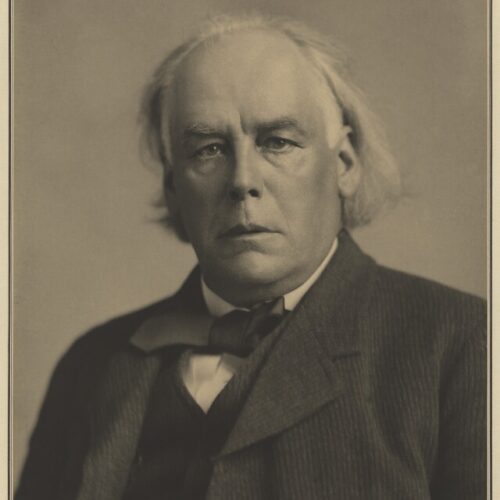

The National Secular Society is a campaigning organisation, founded in 1866 to champion the principles of secularism and the separation of Church and state. An associate member of Humanists International, the NSS has also historically worked alongside Humanists UK to advance shared values, including as part of the Humanist Council and Humanist Association.
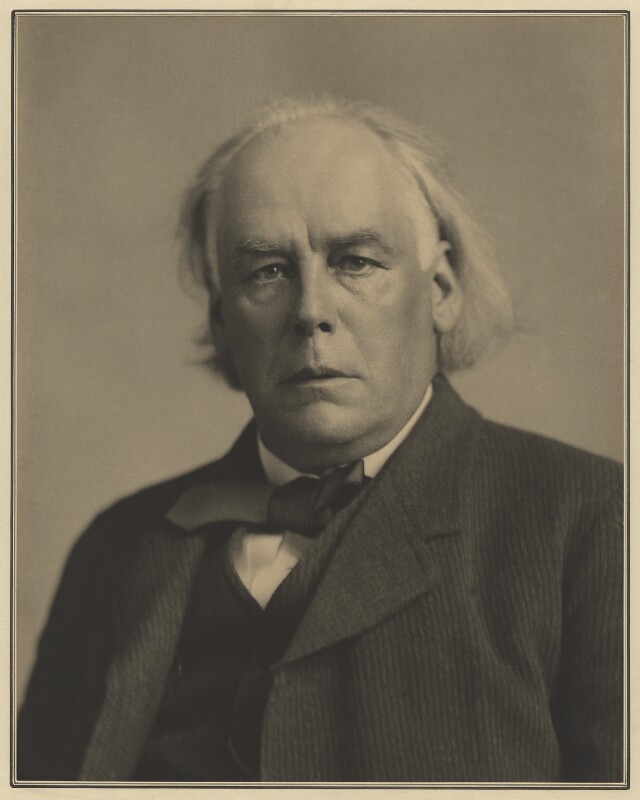
This radical, campaigning organisation was founded on 9 September 1866, when Charles Bradlaugh published the programme and principles of the new organisation in his newspaper The National Reformer. As such the NSS is one of the nation’s oldest radical campaigning organisations. Its founding principles included:
That human improvement and happiness cannot be effectually promoted without civil and religious liberty, and that, therefore, it is the duty of every individual…to actively attack all barriers to equal freedom of thought and utterance…
Up to this time, local secular societies existed in most parts of the country. Bradlaugh’s aim was to bind them into a national organisation with a federal structure.
For the next 25 years Bradlaugh dominated the organisation, using it as a platform for his radical political programme. This programme included an assault on religious privilege, but also encompassed, for example, proposals for the reform of parliament and the political system, land law reform and redistribution of land ownership, republicanism, and Malthusianism (birth control). Hence the Society was closely involved with Bradlaugh and Annie Besant’s campaign for the right to publish Malthusian literature, and with Bradlaugh’s struggle to take his seat in the House of Commons. In a sense, it was Bradlaugh’s power base.
The NSS of this time drew most support from the working class. Its style was outspoken and aggressive and it was often looked down upon by more gentile and better educated supporters of reform who recoiled from such unsophisticated militancy. Nevertheless public meetings held in such venues as the Hall of Science on Old Street, London packed in crowds of up to 2,000 to hear Charles Bradlaugh and other NSS leaders slay their foes.
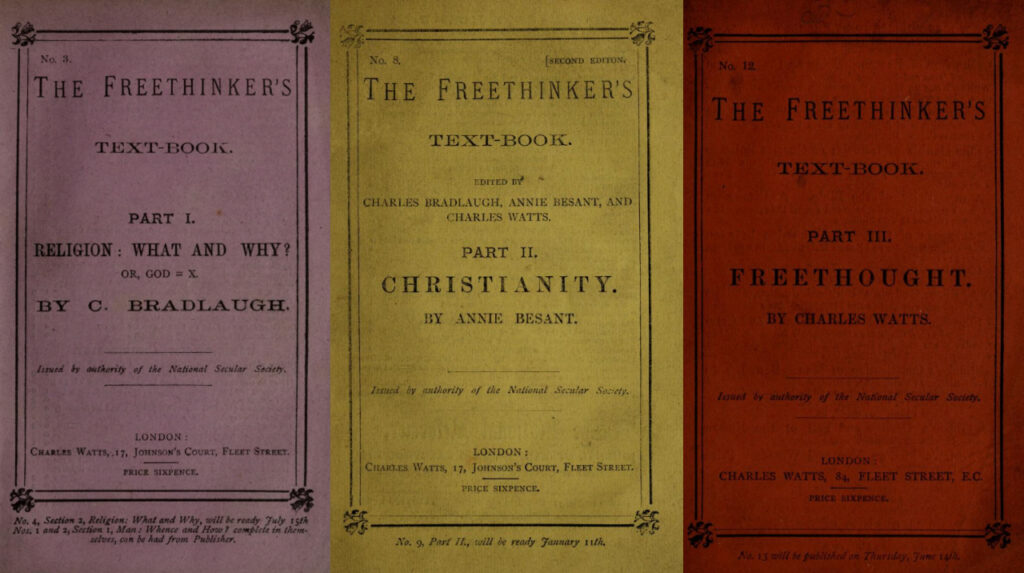
In 1890 Bradlaugh resigned his presidency and G.W. Foote replaced him. From then the focus became narrower as socialist ideas, the Labour Party, and trade unions became the main vehicles for working class activists and campaigns for reform. Nevertheless, the NSS retained a loyal following, committed to challenging the privileged position of religion in society, particularly that of the Church of England. Public meetings were held to broadcast the Society’s message. Some were held indoors and others outdoors at such venues as Victoria Park and Hyde Park in London. In that era, all of Britain’s cities had such meeting places. The other main vehicle for communication was the weekly Freethinker (which continued in that capacity for many years) and the leaflets, booklets, and books published by its in-house publisher, the Freethought Publishing Company Ltd. Later the publisher was the Pioneer Press.
In 1915 Chapman Cohen became the new NSS President on the death of Foote and held that position for 34 years, considerably longer than anybody else before or since. The NSS campaigns of that time included calls for the abolition of the blasphemy law and religious schools, and it railed against religious influence within the BBC. A particular highlight of this period was Bertrand Russell’s celebrated lecture on a NSS platform in 1927 at Battersea Town Hall, ‘Why I am not a Christian’.
In 1949 Cohen stood down from the Presidency and the Society went into a relative decline until the advent of a new generation under the leadership of David Tribe. Tribe held the Presidency from 1963 to 1971. During this period the NSS campaigned vigorously for a number of liberal social reforms including abortion law reform, the law on suicide, voluntary euthanasia (now called assisted dying), the decriminalisation of homosexuality, divorce law reform, and the broad front of civil liberties. It was during this period, and particularly during Roy Jenkins’ tenure as Home Secretary, that the Society celebrated the fulfilment of more of its policies and aspirations than during any other period.
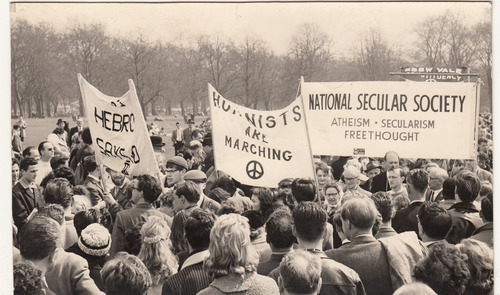
In 1971 Barbara Smoker became the new NSS President and held that office for 25 years. Barbara was active in various campaigns, such as the abolition of the death penalty and nuclear disarmament. During her Presidency she also chaired the Voluntary Euthanasia Society (now Dignity in Dying). She wrote frequently and with panache. In 1977 she joined the campaign to defend Gay News when a private prosecution was bought by Mary Whitehouse. Barbara was in great demand as an officiant at humanist funerals and frequently appeared at meetings in universities where she made the case for unbelief, sometimes in hostile circumstances.
Barbara was succeeded by Denis Cobell in 1997, after a brief period when Daniel O’Hara held the office. In 2006 he was followed by Terry Sanderson, whose Presidency saw the long campaigned for abolition of blasphemy laws in 2008. In 2010 he was active in organising protests against the Pope’s visit to the UK. In 2017, Terry was succeeded as President by Keith Porteous Wood (formerly Executive Director).
Today the National Secular Society continues to champion ‘the separation of religion and state and equal respect for everyone’s human rights so no one is disadvantaged, nor privileged, because of their beliefs’.
Our Story | National Secular Society
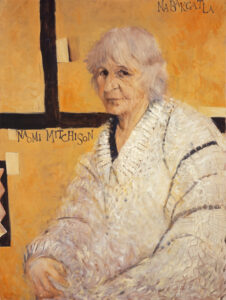
Good will, that curious product of consciousness, of leisure and energy to spare and share. That thing we put out […]
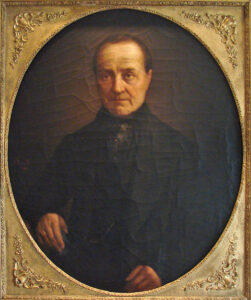
Auguste Comte was a French writer, philosopher, and social scientist, whose theory of positivism was a significant influence on the […]
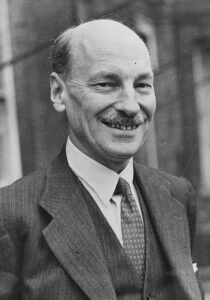
…having now exceeded the age of three score years and ten, I would say that up to the present I […]
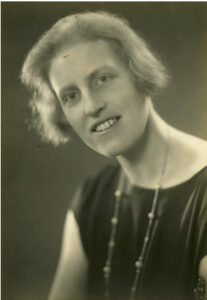
The attempt to create communities where men and women alike share the full stature of humanity is an attempt to […]